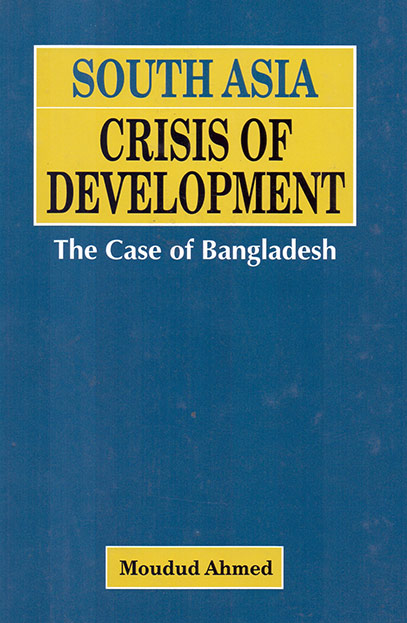
- Shop
- Political Science
- South Asia Crisis of Development: The Case of Bangladesh
South Asia Crisis of Development: The Case of Bangladesh
https://uplbooks.com/shop/9789840516531-south-asia-crisis-of-development-the-case-of-bangladesh-3038 https://uplbooks.com/web/image/product.template/3038/image_1920?unique=90f5a49
| Language: English |
Tags :
Book Info
Fifty years of independence has not provided the degree of economic growth, social enlightenment of political stability that had been the hope and aspiration of more than a billion people who live in South Asia. Moudud Ahmed has attempted to explain some of the reasons why the countries of South Asia, and in particular India, have not measured up to their potential. This is principally glaring when their achievements are stacked against those of some of the South-East Asian countries who were more disadvantaged economically and socially three decades ago, but can now project a far better national scenario than any of the countries of South Asia. The author feels that India, as the predominant political and economic power in South Asia, has failed to provide a viable growth model for development nor has helped assuage the social and political fears of its much smaller neighbors. The issues of Kashmir and nuclearization not only pose the most immediate threat to security of the region but the consequent arms race between India and Pakistan was drastically retarding the development of the region. He contends that Bangladesh’s role within South Asia is many ways unique. Its problems of development, economic, social and political, are examined in detail and the author does not shy away from mentioning the reasons for the existing state of affairs. In his vision, however, the author finds that Bangladesh has a great potential and it could lead the South-Eastern part of the sub-continent into a region of prosperity. Finally, the author underscores a number of suggestions, which could help improve the situation and prepare the region to face the challenges of globalization.

Moudud Ahmed
Moudud Ahmed (1940-2021) was a prominent statesman whose illustrious political career spanned decades in independent Bangladesh. From serving as the country’s first Postmaster General to holding key roles including Prime Minister, Vice President, and Minister of Law, he remained a central figure in shaping the nation’s governance. Despite shifting political affiliations, Ahmed consistently sought to rise above party lines, guided by his enduring love for Bangladesh. He actively participated in the Language Movement, Mass Uprising (1969) and the Liberation War. A prolific writer, he authored over a dozen books on law, politics, and history. His contributions were marked by intellectual depth and an unrelenting commitment to democratic ideals. He was awarded the Mother Teresa Award for Social Justice in recognition


